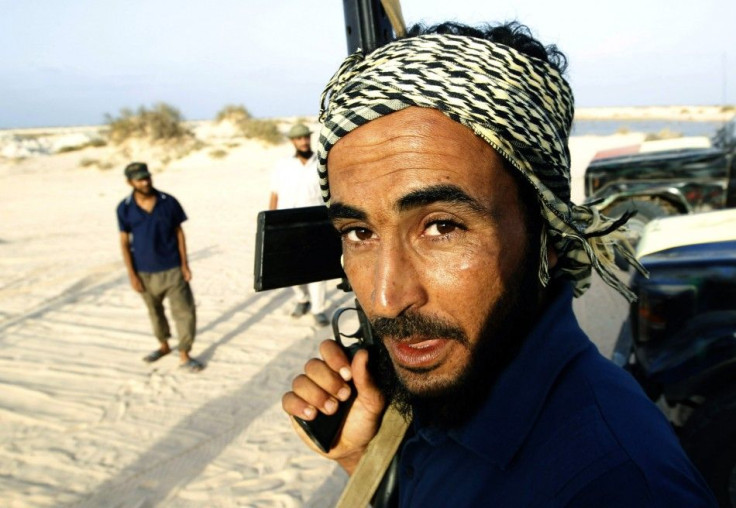Gadhafi, Egypt Protests, Syrian Causalities: Arab World Wrap-Up

The Arab Spring was hailed as a triumph for democracy, but the after-effects of the popular movement are still being felt. Here is a look at what is happening in the Arab world on Wednesday, Sept. 7.
Libya: Rebels are saying that they have Moammar Gadhafi surrounded and that either his capture or his death is imminent.
A National Transitional Council spokesperson, Anis Sharif, told Al Jazeera that they are within 40 miles of Gadhafi, who is still hiding in Libya, although they would not say where.
It is the tent. We know that [Gadhafi] does not want to stay in a house, so he stays in a tent. People say the cars came, and then they made a tent, said the N.T.C.'s Hisham Buhagiar.
Earlier this week, a Libyan convoy entered neighboring Niger, where Gadhafi's cousin and confidant Gen. Mansour Daw was reportedly escorted to the capital city of Niamey. It was initially thought that Gadhafi and possibly his son Saif al-Islam were part of the desert trek, but both pro- and anti-Gadhafi forces attest that he is still in Libya.
Meanwhile, rebels are currently trying to negotiate the surrender of Bani Walid, one of the last loyalist bastions left in Libya.
Iran: Six people were hanged in Ahvaz on Sunday, three for the hadd crime of sodomy. According to Iranian state news agency ISNA, the men -- deemed M. T., T. T. and M. Ch. -- broke articles 108 and 110 of the Iranian Islamic penal code, which covers homosexual acts.
Syria: As President Bashar al-Assad continues to fire on anti-government demonstrators, France's Foreign Minister has accused Syria of committing crimes against humanity.
The way [Syria has] suppressed the popular protests is unacceptable, Alain Juppe said while on a visit to Moscow, according to Agence France Presse.
Since April, more than 2,200 people have died in the clashes between government forces and protestors. On Wednesday, seven people were killed in Homs, according to local activists.
Egypt: The Hosni Mubarak trial resumed in Cairo this week, once again sparking fierce protests and clashes with police outside the courthouse.
On Wednesday, a key witness in the Mubarak case was charged with perjury. A senior police officer testified that government forces did not use live rounds when shooting demonstrators in January, a statement which the court believed to be a lie.
In the Mubarak regime, the police -- unlike the army -- was an agent of the government.
Mubarak has been charged with conspiracy to commit murder over a government crackdown on popular protests which left more than 800 people dead. He is currently in poor health, and has been on a hospital bed for the duration of the trial.
© Copyright IBTimes 2024. All rights reserved.











